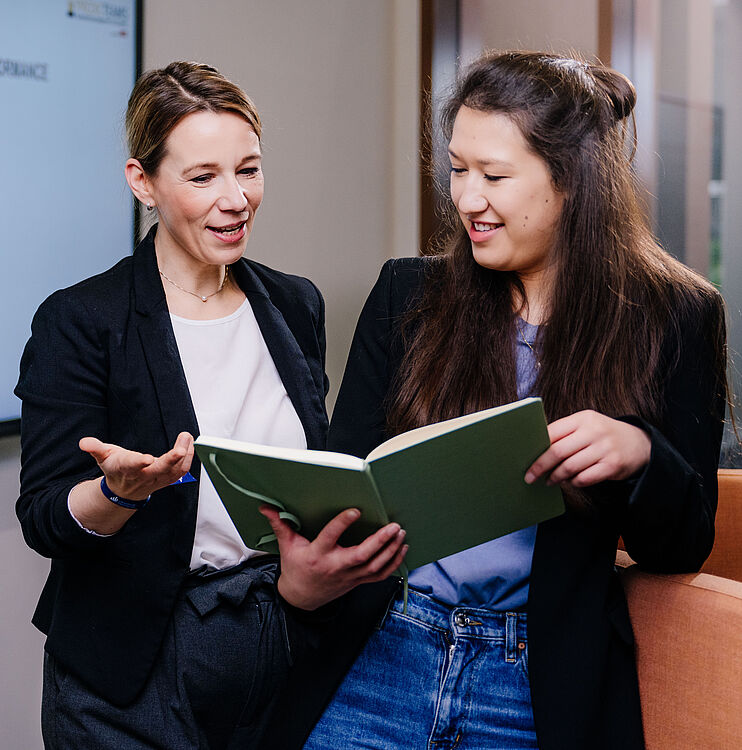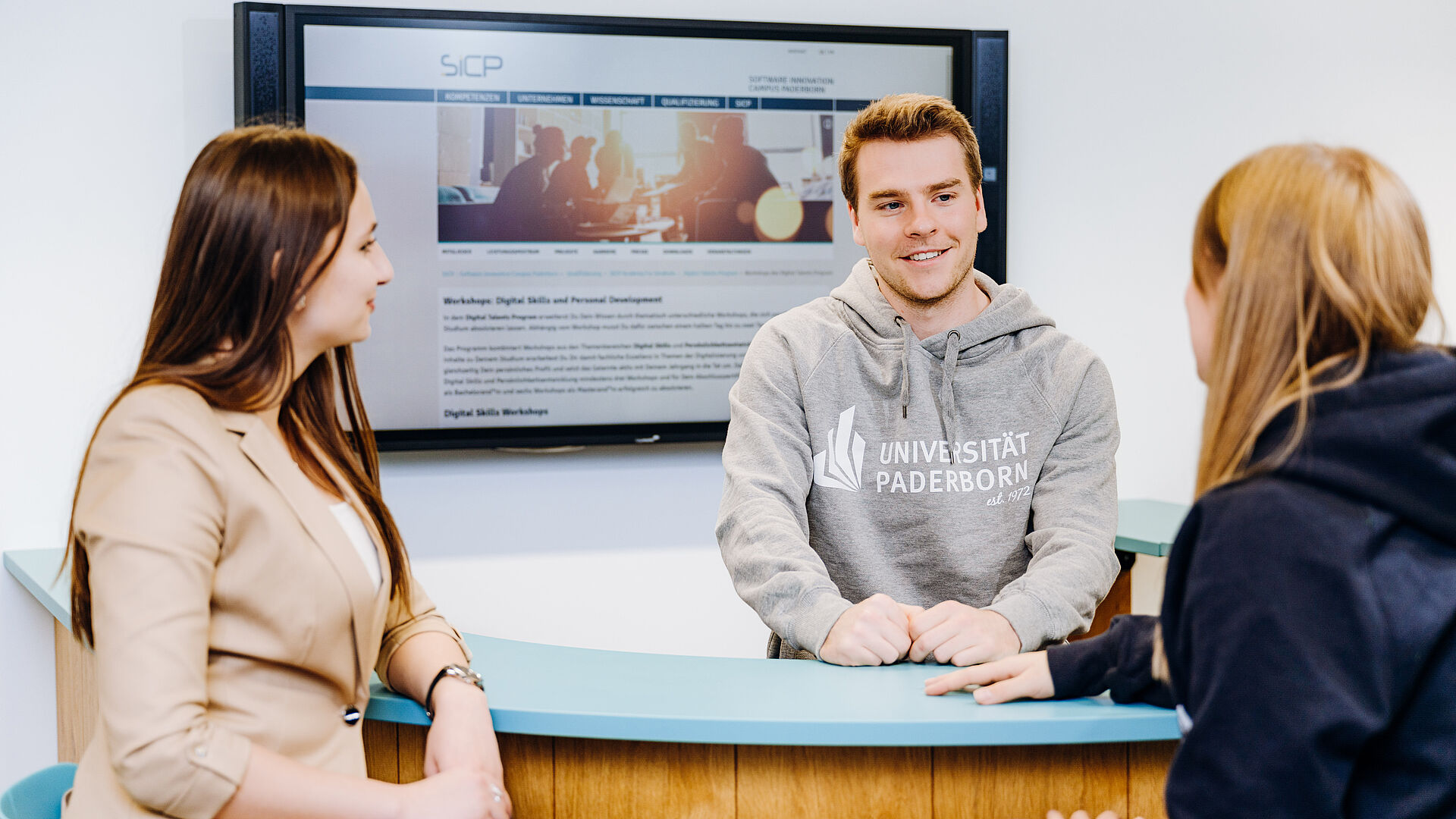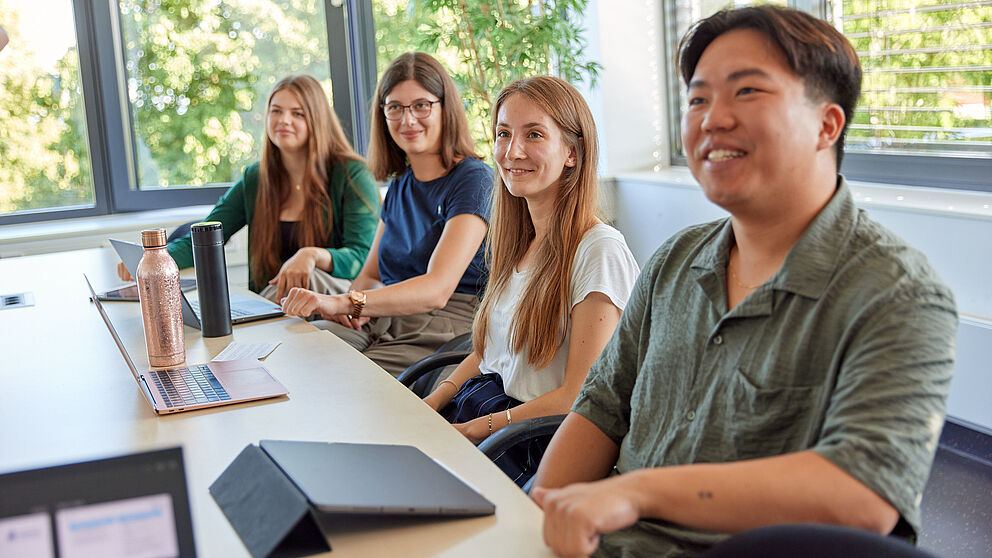WiWi coaching - our "help for self-help"
Learning at university is different from learning at school. From now on, you will be sitting in the Audimax with several hundred students, listening attentively to what the lecturers are saying and taking notes. Attendance is not compulsory in the lectures, which is why self-study is very important. From now on, you will enjoy the freedom to organise your work and time yourself. However, this also requires a high degree of self-motivation, discipline and concentration, which can lead to excessive demands and stress. Because during the semester, no one - except YOU - will usually check your learning progress. To prevent these difficulties, the Faculty of Business Administration and Economics offers you the Wiwi Coaching programme. Here you have the opportunity to get support from experienced students.
Three reasons for Wiwi coaching
Shape your own learning process
Get advice if you find it difficult to organise your time sensibly; get suggestions for learning motivation and find out what you can do to combat procrastination.
Acquire new knowledge
Ask questions if you have not understood something and discuss past exams.
Get to know new learning and working strategies
Work through learning content with the help of so-called "learnletters" and consolidate and repeat it.
Would you like to take part in Wiwi coaching? In the Panda courses of the individual modules, you can register for the coaching sessions in order to achieve more efficient and independent learning progress in the future.
The WiWi-Coaching course
Become a student coach and support students in their learning process
The coaching training course is aimed specifically at students of economics who would like to help their fellow students during the assessment phase to better understand the content of the respective modules (Management, Introduction to Economics and Taxation, Accounting and Finance). In order to be prepared for the activities and challenges as a coach in university teaching, you will be introduced to didactic and methodological competences in the Wiwi coaching training course. You will receive a certificate for participating in the coaching training sessions and after preparing a position and reflection paper, which is issued in cooperation with the Office of Educational Innovation and University Didactics. This will also look good on your CV if, for example, you aspire to a career in management, personnel management or education in the future.

The coaching training provides support in the following fields:
- Conducting goal- and target-oriented counselling sessions
- Supporting and stimulating learning processes
- Methodically good communication of the department
- Promoting motivation and concentration among students
- Recognising students' learning difficulties
- Confident demeanour in coaching situations

The coaching training course covers the following topics in detail:
- General and methodological basics of coaching
- Your own role as a coach
- Analysing coaching situations and possible courses of action
- The importance of active listening in coaching situations
- The importance of empathetic mirroring in coaching situations
- Different types of learning and work as well as learning management
Structure of the coaching training:
Preparation:
Firstly, you will take part in the introductory and information event. In this first session, you will receive all the important information about the coaching training programme and an overview of your to-do's as a coach. This appointment will take place digitally.
Realisation:
There are up to four training dates in total, which take place every three to four weeks. We will coordinate the dates according to your capacities. The training dates take place in person and the training material is provided both on site and digitally in a shared folder. During this phase, you will create a position paper in which you communicate your expectations, wishes and role as a coach at the beginning of the training, as well as a reflection paper in which you reflect on your experiences as a coach and through the training content. These appointments also serve to share the experiences you make during your coaching times over the course of the semester. At the beginning of the semester, there will also be an exchange with former coaches, where you will have the opportunity to ask questions about your coaching work and discuss further coaching topics with them.
Reflection:
At the end of the semester, there will be a final exchange and reflection session in which you will review your time as a coach and reflect on your experiences as a coach both individually and in the group. This session will take place digitally.
Would you like to advise students yourself in the future? Then get in touch with the contact persons for the Management, Introduction to Economics and Taxation, Accounting and Finance modules in the winter or summer semester. You can find them in the modu



